THREE THOUSAND YEARS OF LONGING (2022)
A lonely scholar, on a trip to Istanbul, discovers a Djinn who offers her three wishes in exchange for his freedom.
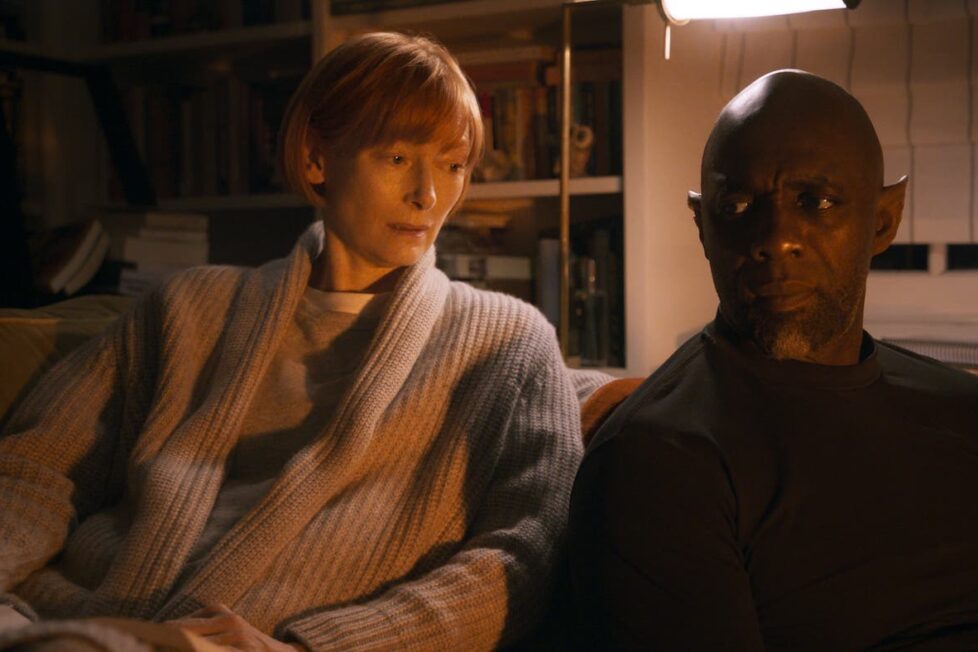
A lonely scholar, on a trip to Istanbul, discovers a Djinn who offers her three wishes in exchange for his freedom.


How does one follow up something as ludicrous, imaginative, and powerful as the almighty Mad Max: Fury Road (2015), let alone after nearly seven years away? If it was made, let’s say, by nearly any other action director other than sui generis maverick George Miller, that answer would probably amount to instant retirement, as it’s simply an insurmountable peak to follow up. But for Miller, the answer he came up with might have appeared relatively obvious; create a modernised riff on the Arabian Nights that adheres to its spirit of understanding the humanity behind all storytelling, while imbuing it with some of the most lively and creative visuals of anything this year outside of Everything Everywhere All at Once.
Make no mistake, the end result—Three Thousand Years of Longing (based on a short story by A.S Byatt)—is far more mystical, solemn, and romantic than the silver-toothed, petrol-drunk energy of Fury Road, but Miller’s imprint still makes itself unmistakeable. Alithea Binnie (Tilda Swinton), a self-proclaimed “solitary creature by nature” with no parents, siblings, or partners, is flying out to Istanbul for a conference on narratology—the analysis of narrative craft. Two notable encounters happen, all within the span of the movie’s first five minutes; first, she’s harrassed by a short, bald man emanating energy who soon disappears into the distance. Second, during a speech she delivers that describes mythology as a pre-scientific way of explaining reality’s unusual occurrences, a mysterious, metallic figure lunges at her in a rage after shouting “rubbish!” from the audience, causing her to pass out. When she wakes up, she’s quick to dismiss both as figments of her imagination… but her purchase of an elaborate blue-white glass bottle concretely proves her otherwise.
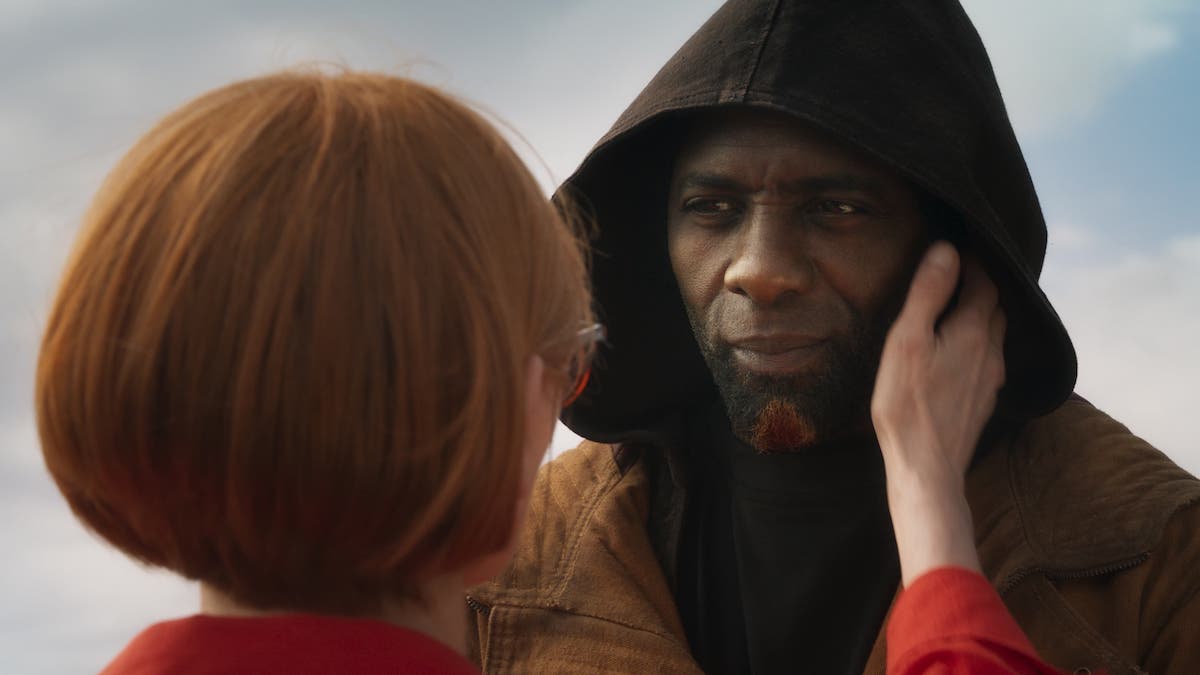
Back in Alithea’s hotel room, as she’s cleaning said bottle, the cap flies off, releasing a Djinn (Idris Elba) of ancient origin—who at first is of enormous stature, but learns to speak English by pulling knowledge from the television using his fingers and shrinks himself to a more reasonable size. The Djinn explains his ability to grant three wishes of her heart’s desire—the fulfilment of which will finally earn him his freedom—but Alithea starts suspecting the honesty of his intentions, citing the cautionary-tale nature of countless stories about wishing. In response, the Djinn, partaking in a Scheherazade-like tradition, guides her down a series of stories involving the people he served and the wishes they manifested, all of which illuminate various truths about romance, desire, and the connective power of storytelling as a whole. Of course, the way Three Thousand Years of Longing goes about phrasing these stories might seem a bit strained… but patient viewers will be rewarded by a bewitching series of images and a robust emotional core that presents its mystical heart with beautifully emotional flourishes.
With a 108-minute runtime, Three Thousand Years is a densely packed narrative, working almost in the same vein as anthologies like The Ballad of Buster Scruggs (2018) to convey the Djinn’s several stories in the right amount of time. A few corners seem to have been cut here and there, perhaps to its detriment—for one, there’s a veritable abundance of voiceover used in this film, and while it makes thematic sense for the Djinn to be narrating much of his own experiences, one wonders if the impact of these stories could have further benefitted from having the situations and characters speak for themselves. That said, however, the variety of characters introduced and the intriguing, deeply emotional scenarios they’re faced with, combined with colourful production design from Roger Ford and vivacious cinematography from John Seale, makes this film a feast for the eyes, with a narrative full of details to chew on if you know where to look.
As the title suggests, the Djinn’s tales span several millennia, beginning from his imprisonment at the hands of King Solomon (Nicholas Mouawad), who trapped the Djinn in a bottle and threw it into the ocean after wooing over the Queen of Sheba (Aamito Lagum), the Djinn’s first love. From there, the film expands itself into different historical eras as the Djinn passes to different owners and encounters various characters, all while failing to obtain his freedom. Whether it be Gulten (Ece Yuksel), a slave girl infatuated with the Sultan’s son, Prince Mustafa (Matteo Bocelli); Murad (Ogulcan Amran Uslu), a bloodthirsty warlord, and his brother Ibrahim (Jack Braddy), who’s forced into the throne; or Zefir (Burcu Golgedar), a brilliant yet isolated scholar who connects with the Djinn over a desire for knowledge, each of these stories, however disparate they are on the surface, tap into a deeply similar set of universal, emotional ideas about what makes up human desire.
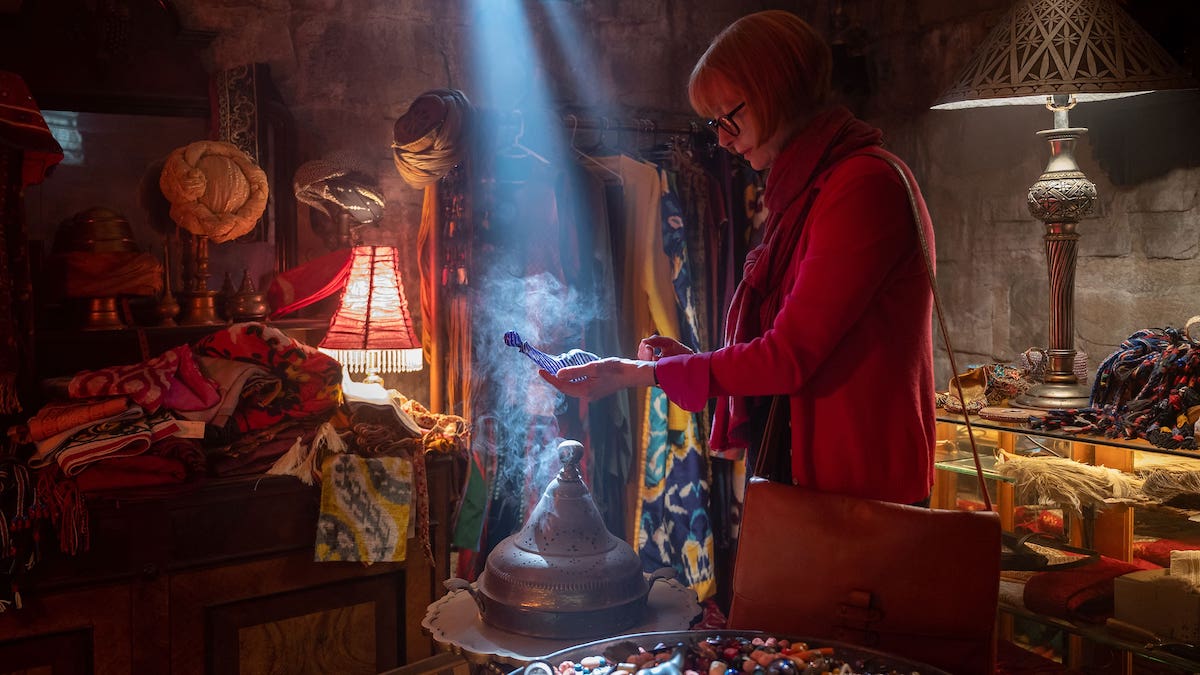
All of these individual anecdotes from the Djinn are punctuated by several conversations between him and Alithea, most of which help to establish and elaborate on the Djinn’s stories, but a handful of them last a little too long and overstay their welcome, especially in the beginning. However, the culmination of Alithea and the Djinn’s interactions unfolds in a mesmeric third act that neatly ties together the film’s ideas of desire and connection found across the Djinn’s historic tales. If anything, the movie’s final stretch is an affirmation that those ideas aren’t just morals about love from bygone eras, but constants that have everlasting power and resonance, even in a vastly different modern day with leaps in scientific advancements and the other existential insecurities that result from them. Three Thousand Years is a film that believes in the emotional power of storytelling and mythology as much as it tries to pack several stories into a compressed package, and its densely layered nature, even if its execution buckles under all that weight, is so richly packed with detail that its heart and soul get a real chance to shine despite the odds.
Elba brings a radiant performance as the most obvious centrepiece of the film—it’s his job to ensure the Djinn’s narration of his stories are sold to the audience with the gravitas, wit, and efficiency required for the film’s structure, and for the most part, he absolutely nails it. His voiceover, while abundant, is also delivered with a sincerity that shines, as his every action is charged with emotion, passion, and at points even desperation all rolled into one as he fights for his freedom while reaching for some form of connection with the humans he meets, making him as much a victim of desire as they are. It’s a rock-solid performance, showing a far more tender side to his range as a superstar actor that previous films of his haven’t quite gotten the chance to fully utilize.
Likewise, Swinton brings a type of scholarly air to Alithea that she uses almost as a defence against the Djinn’s earnest requests for her to make a wish. As she’s introduced to one story after another and becomes emotionally invested in the Djinn’s journey, that air gradually fades to make way for something more charged with yearning and emotion, especially towards the film’s third act—a deconstruction of her supposed contentment with the solitude the film phrases as an inevitability even from the beginning.
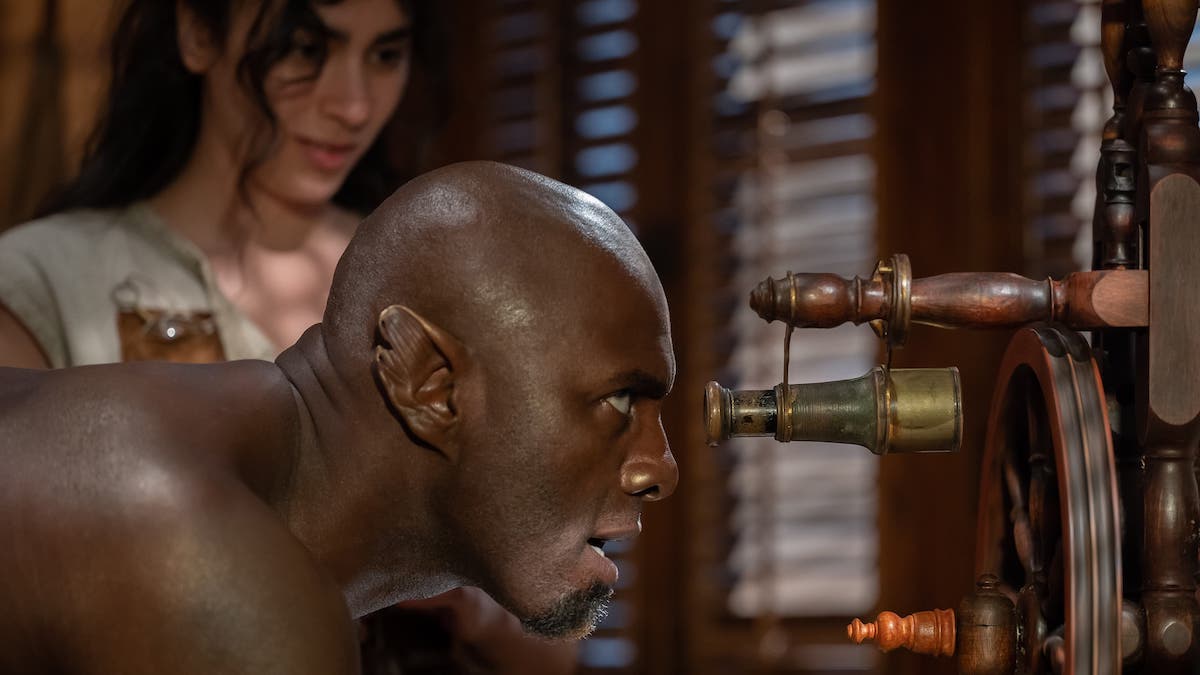
Of course, while these touches of adult fantasy, solemnity, and romance are what almost completely separates this from a Fury Road-esque film, Miller’s edge for creativity and maximalism is still perfectly intact. Each palace, temple, throne room, dungeon, and modern cityscape is so utterly vast, kaleidoscopically colourful, and visually appealing that it makes Three Thousand Years one of the most visually distinctive films with a theatrical release in recent memory, and offers it a bizarre yet unique fantasy flavour that effortlessly draws audiences into its folkloric world-building. (Look no further than King Solomon’s entrance as he tries to win over the Queen of Sheba’s favour, which has him playing a positively enormous string instrument with magical moving hands attached to it that pound on drums and pluck on ancillary string instruments of their own.)
Even so, Three Thousand Years of Longing is an interesting beast to pin down; for some, a different sense of longing might emerge as the film reaches its conclusion, a kind of yearning for some of the film’s wrinkles in narrative structure, voiceover, and pacing towards the first act to be ironed out in some way. But still, the film’s visual tricks are no doubt impressive (again, who other than Miller would be worthy enough to pull them off as well as he does?), Elba and Swinton are an effective dynamic duo that effortlessly keep the audience engaged, and the odes to storytelling that the film provides is resonant enough to linger with you far after the credits roll. None of the more eyebrow-raising aspects of this film obscures its ideas; in fact, just about all of them are made clear enough for the audience to put together into something more overarching long after the credits roll. It’s just that some might find the journey to that point a little ambitious, clunky, and overwrought for its own good… but you can’t quite blame a George Miller film for capitulating to its grander ambitions here and there.
AUSTRALIA • USA | 2022 | 108 MINUTES | 2.39:1 | COLOUR | ENGLISH

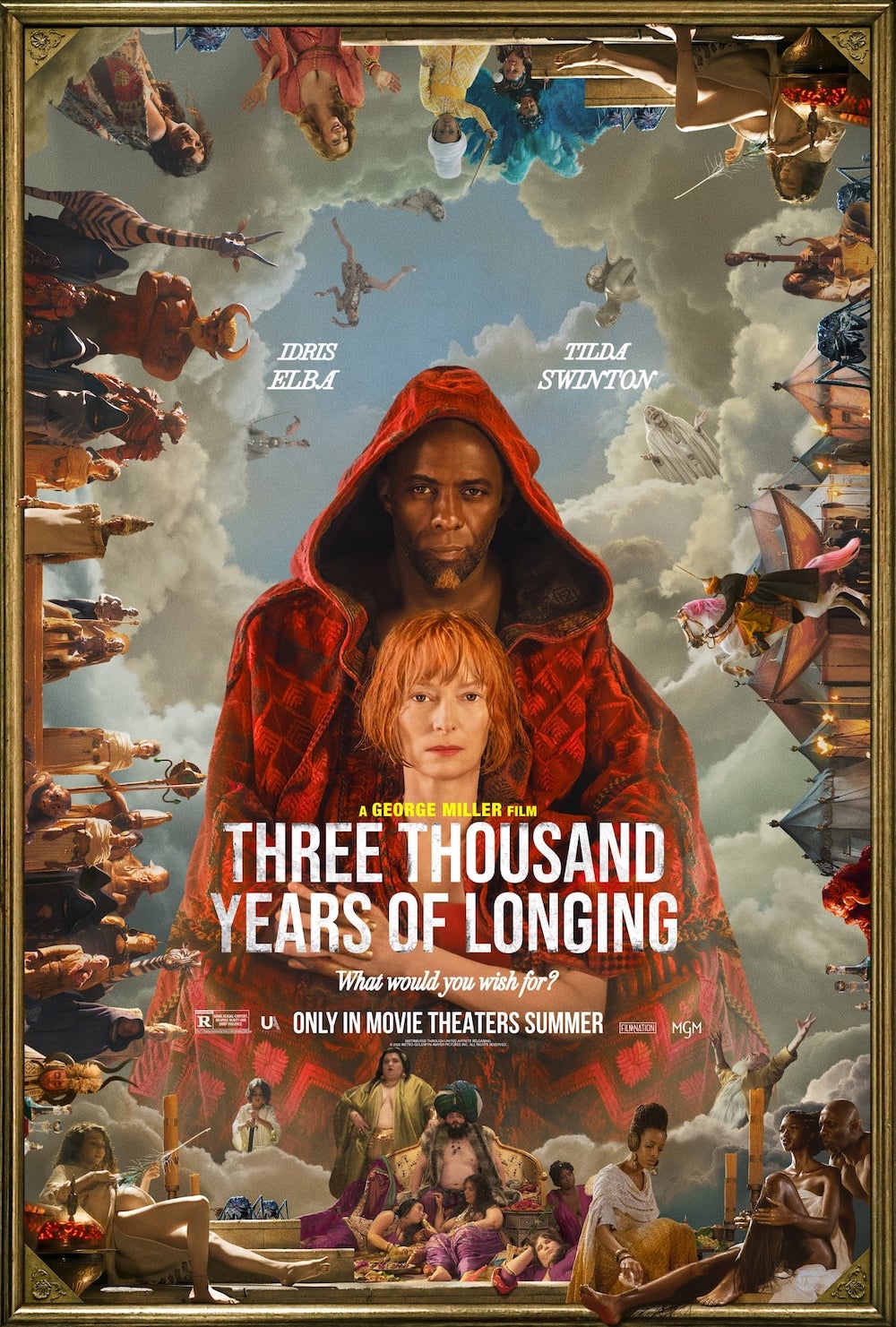
director: George Miller.
writers: George Miller & Augusta Gore (based on a short story by A.S Byatt).
starring: Tilda Swinton, Idris Elba, Aamito Lagum, Ece Yuksel, Ogulcan Amran Uslu & Burcu Golgedar.
